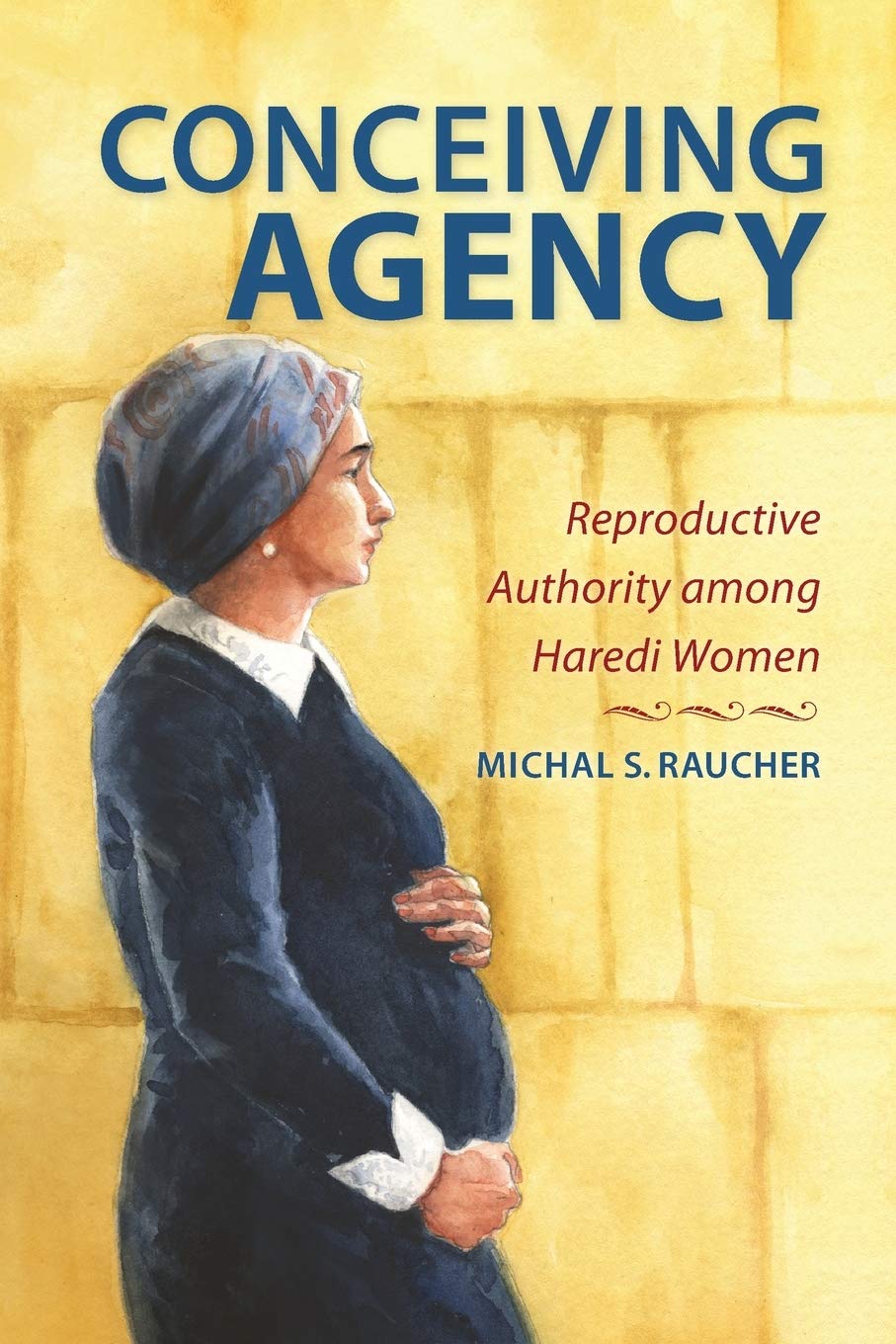
Bodily Autonomy and The Ultra-Orthodox
Usually in Haredi life, both women and men rely on rabbinic authorities for guidance in life decisions large and small. But for women’s reproductive lives, it is different. Michal Raucher, Assistant Professor of Jewish Studies at Rutgers University, has written a fascinating and accessible ethnography of “reproductive ethics,” based on two years of research in Jerusalem and interviews with doctors, nurses, doulas, and nearly two dozen women. The women all had at least three children—because this was the “magic” number of children after which Haredi women gained the confidence to start making their own reproductive health decisions.
Raucher begins Conceiving Agency: Reproductive Authority Among Haredi Women [Indiana University Press, $24.00] by focusing on the fact that in Israel, doctors, who receive referrals through rabbis, are reluctant to stop acquiescing to rabbis’ demands, for fear that they will lose income from large Haredi families.
Struggling against these forces, Haredi women try to assert authority for their pregnancies by prominently featuring health and spiritual-oriented pregnancy advice books in their homes near their husbands’ seforim (Jewish religious books). These books, religious and spiritual versions of What to Expect When You’re Expecting, synthesize medical and religious advice and add uplift. Raucher analyzes these texts and shows how by owning these books, but not consulting or consciously using them, Haredi women recognize the importance of “book culture” in their world, while still maintaining their own autonomy.
In another chapter, Raucher focuses on how Haredi women use theological concepts to justify reproductive autonomy. Creating their own feminist theology (not that they would call it that), they see pregnancy as the “embodiment of divine authority” and therefore reject the authority of the rabbis, who are usually the intermediaries between them and God. Haredi women believe pregnancy and birth connect them directly to God and God’s acts of creation.
Male rabbis will never be pregnant and blessed with this divine gift and therefore, they believe, can never truly exert authority over a woman’s pregnant body and make decisions for her.
Yet, Haredi women at times have to make the difficult decision to terminate a pregnancy, for reasons including risks to the fetus, their own health, and financial distress. Raucher found in her research that the only time during their pregnancies when Haredi women turn to rabbinic authorities is for confirmation when they have decided that the pregnancy needs to be terminated.
Note the sequence of events—the woman decides that she needs to have an abortion, and then she finds a rabbi to “ask” whom she knows will support that decision.
Women who are concerned about a pregnancy because of the financial stresses on their family often call eFraT, an Israeli anti-abortion organization, for guidance and support. eFraT’s mission is to prevent abortions because of financial difficulties, and to increase the Jewish birthrate in Israel, by providing financial support to pregnant women so that they will continue their pregnancies with material and emotional support. eFraT’s assistant director views the organization as “pro-woman,” not “pro-life.” She believes anyone who supported women would help them have children. She even refused to sign Raucher’s research con- sent form until Raucher changed the organization’s description from “pro-life” to “pro-woman.”
Raucher notes patterns in her subject: one woman was eager to set up an interview with another friend, but it had to be at dinnertime. The woman worried that Raucher wouldn’t be home to get food ready for her husband, whom she assumed would be coming home from Kollel (yeshiva) and expect dinner. Raucher felt too uncomfortable to tell her contact she was “not the type of person to think about what my spouse would eat before I left the house at night.” After she lied and told the woman that she had made something ahead of time and left it for him, she felt guilty: “I felt terrible for lying to Devorah, who had just shared with me the most intimate secrets about her reproductive history, secrets she had not shared with anybody else. And yet I could not even admit that I did not make dinner that night.” Acknowledgement of the dissonance between her life and those of the Haredi women is part of the feminist project Raucher undertakes.
Raucher concludes by explaining that her emphasis on Haredi women’s embod- ied religious authority has implications for the field of religious ethics. Religious ethics, she notes, including in Judaism, have traditionally taken their authority from religious texts. In this way, wom- en’s experiences have been marginalized. When women in a text-focused culture choose to make moral decisions based on their bodily experiences, it forces us to reconsider how ethics can actually speak to the real lives of individuals. “Women’s experiences provide us with an alternative discourse of ethics,” she concludes.





